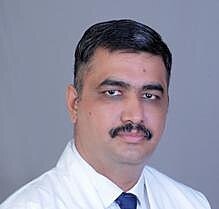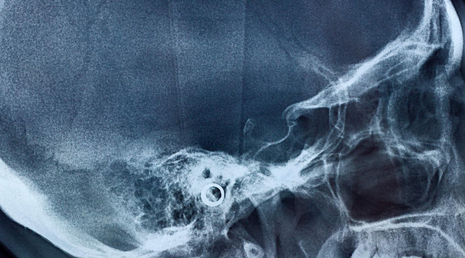
M.B.B.S., L.T.M.M.C., G.H., D.N.B. (Neurosurgery)
Since August 2015, I have been serving as a Consultant Neurosurgeon and Spine Surgeon at Indraprastha Apollo Hospitals, New Delhi. In June 2022, I transitioned to Apollo Hospitals Navi Mumbai, and in June 2024, I rejoined Indraprastha Apollo Hospitals. Additionally, I hold the position of Honorary Neurosurgeon at Tirath Ram Shah Charitable Hospitals, Delhi. In the past, I have had the honor of being associated with Yatharth Super Speciality Hospitals, Chikitsa Noida Medical Center, Apollo Hospitals Noida, and Inlaks Hospitals, Mumbai.

A spinal cord injury — damage to any part of the spinal cord or nerves at the end of the spinal canal (cauda equina) — often causes permanent changes in strength, sensation and other body functions below the site of the injury.
If you've recently injured your spinal cord, it might seem like every aspect of your life has been affected. You might feel the effects of your injury mentally, emotionally and socially.
Many scientists are optimistic that advances in research will someday make repair of spinal cord injuries possible. Research studies are ongoing around the world. In the meantime, treatments and rehabilitation allow many people with spinal cord injuries to lead productive, independent lives.
Your ability to control your limbs after a spinal cord injury depends on two factors: where the injury occurred on your spinal cord and the severity of injury.
The lowest part of your spinal cord that remains undamaged after an injury is referred to as the neurological level of your injury. The severity of the injury is often called "the completeness" and is classified as either of the following:
Additionally, paralysis from a spinal cord injury can be referred to as:
Emergency signs and symptoms of a spinal cord injury after an accident include:
Spinal cord injuries can result from damage to the vertebrae, ligaments or disks of the spinal column or to the spinal cord itself.
A traumatic spinal cord injury can stem from a sudden, traumatic blow to your spine that fractures, dislocates, crushes or compresses one or more of your vertebrae. It can also result from a gunshot or knife wound that penetrates and cuts your spinal cord.
Additional damage usually occurs over days or weeks because of bleeding, swelling, inflammation and fluid accumulation in and around your spinal cord.
A nontraumatic spinal cord injury can be caused by arthritis, cancer, inflammation, infections or disk degeneration of the spine.
Although a spinal cord injury is usually the result of an accident and can happen to anyone, certain factors can predispose you to being at higher risk of having a spinal cord injury, including:
M.B.B.S., L.T.M.M.C., G.H., D.N.B (Neurosurgery)
My Neurosurgical Training in Chennai (2003-2008) involved working in the prestigious Neurosurgical unit at Voluntary Health Services Hospital. I had the honor of starting with and being the last student of Prof. B. Ramamurthi, the first Neurosurgeon of India, who established this institute after superannuation from Madras Medical College. Thereafter, I worked under Dr. Chandrashekhar Deopujari and Dr. Uday Andar at Bai Jerbai Wadia Hospital for Children, Mumbai (2009 – 2011).
Dr. Amit Kapoor
Indraprastha Apollo Hospital
Tirath Ram Shah Hospital
Happy Healing Polyclinic
Apollo Hospital, Noida
dramitkapoor@yahoo.com
+91-8448449837
©2022 Dr. Amit Kapoor, All Right Reserved.
